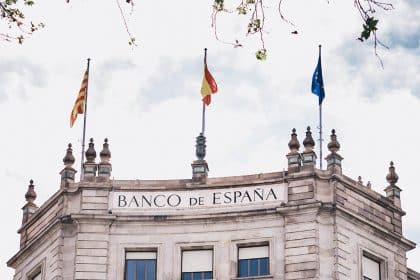The program is specific to the BDE and it claims to be unassociated with the undergoing work in the European Union researching the utility of a digital euro.
Spain’s Central Bank, the bank of Spain (Banco de España), announces its plans to inaugurate an experimental program to commence examining wholesale Central Bank Digital Currencies (CBDC) and is looking for partnerships and submissions from native finance and technology establishments.
The Bank of Spain prepares to launch a wholesale central bank digital currency (CBDC) undertaking on Monday and has provided a deadline of January 31st to apply for the initiative.
The program plans to address the utility of a CBDC in wholesale transactions, the bank conveyed in a formal statement. Wholesale transfers are the ones that include the exchange of funds between banks and financial establishments.
The bank plans to target three specific regions with the program that looks into emulating the movement of funds, experimenting with the liquidation of financial assets, and assessing the advantages and disadvantages of presenting a wholesale CBDC to its present procedures and framework.
A wholesale CBDC is essentially a virtual currency, particularly in use by banks to hold reserves with a central bank, in comparison to a retail or general-purpose CBDC that is exposed to use by the public.
The program is specific to the BDE and it claims to be unassociated with the undergoing work in the European Union researching the utility of a digital euro. Moreover, in September this year, France’s central bank also revealed its plans to work on two projects to analyze a probably wholesale CBDC.
Parties with a proposal/ submission in mind must fulfill the minimum eligibility requirements placed by the bank and reveal the economic means they are promising to the project in an application process which officially closes on Jan 31st.
However, there has been some criticism from countries that initially were looking into launching a CBDC. The Assistant Governor of the Reserve Bank of Australia said on December 8 at a central bank conference that a retail CBDC can end up with people refusing to use commercial banks completely and possibly affecting the Australian Dollar.
RBA’s Australian dollar AUD CBDC trial brought into public on August 9 has witnessed more than eighty financial authorities offering use cases according to Jones but acknowledged that banks could very likely face liquidity concerns if a CBDC became the preferred source of holdings.
On the other hand, The Bank of Thailand (BOT) is also set to inaugurate a pilot of a retail CBDC before the end of the year, with a testing ecosystem capping at ten thousand people. This follows after the Bank of China introduced the first trial of its e-CNY in April 2020, which is now the most popular CBDC in the world, having facilitated $14 Billion worth of transactions during its pilot phase.
next